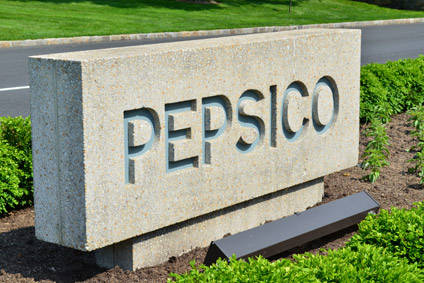PepsiCo is extending its “productivity plan,” which was initially announced in 2019 and is intended to result in yearly savings of $1 billion U.S. dollars, all the way through the year 2026.
The owner of Lay’s and Quaker put out a variety of measures in manufacturing, distribution, and information systems two years ago with the intention of “simplifying” the organisation and the methods it utilises.
PepsiCo reported more than $1 billion in “productivity savings” for the year 2019 as a result of the actions taken. In the annual report for that particular year, PepsiCo stated that the company intended to “provide this amount yearly through 2023.”
Yesterday (13 July), in conjunction with the announcement of the company’s financial results for the first half of the year, the American multinational corporation said that it would look into continuing the programme for another three years.
PepsiCo stated in a statement that the expansion of the programme “reflects further initiatives to leverage new technology and business models to further simplify, harmonise, and automate processes; re-engineer our go-to-market and information systems, including deploying the right automation for each market; and simplify our organisation and optimise our manufacturing and supply chain footprint.” “The expansion of the programme reflects further initiatives to leverage new technology and business models to further simplify, harmonise, and automate processes.” As a direct result of this, we have decided to extend our goal to produce at least $1 billion in annual productivity savings until the year 2026.
Just Food has requested additional information regarding what the ongoing push toward cost reduction would mean for employment opportunities and PepsiCo’s manufacturing network.
After PepsiCo had released the results for the second quarter of its fiscal year, the firm’s Chief Financial Officer, Hugh Johnston, addressed the company’s analysts and stated, “Part of what we’re trying to do is mould the company for the future.” And as a result of this, we are certainly cutting costs in certain areas, and at the same time, we are investing in certain areas, such as digitalizing the supply chain and making our contacts with customers and consumers significantly more effective than they were in the past.
PepsiCo’s net revenue increased by 14.1% to $34.04 billion in the 24 weeks leading up to the 12th of June, or by 8% on an organic basis.
The organic sales of Frito-Lay North America increased by 4%, while the company’s overall volume increased by 0.5%.
On an organic basis, Quaker Foods North America suffered a decline of 7% in the company’s sales. There was a 12% decrease in volume.
PepsiCo’s operating income for the first half of the year rose by 28 percent to $5.44 billion. On a fundamental level, it showed a 15% improvement.
The reported group net income increased to $4.01 billion, up from $2.98 billion in the previous year.
According to the chairman and chief executive officer of the company, Ramon Laguarta, “given the strength of our performance, we now estimate our full-year organic sales to climb 6% and our core constant currency profits per share to increase 11%.”
PepsiCo had previously projected “mid-single-digit growth” for annual organic revenue and “high-single-digit growth” for core, constant-currency EPS growth. These projections have since been revised downward.















































